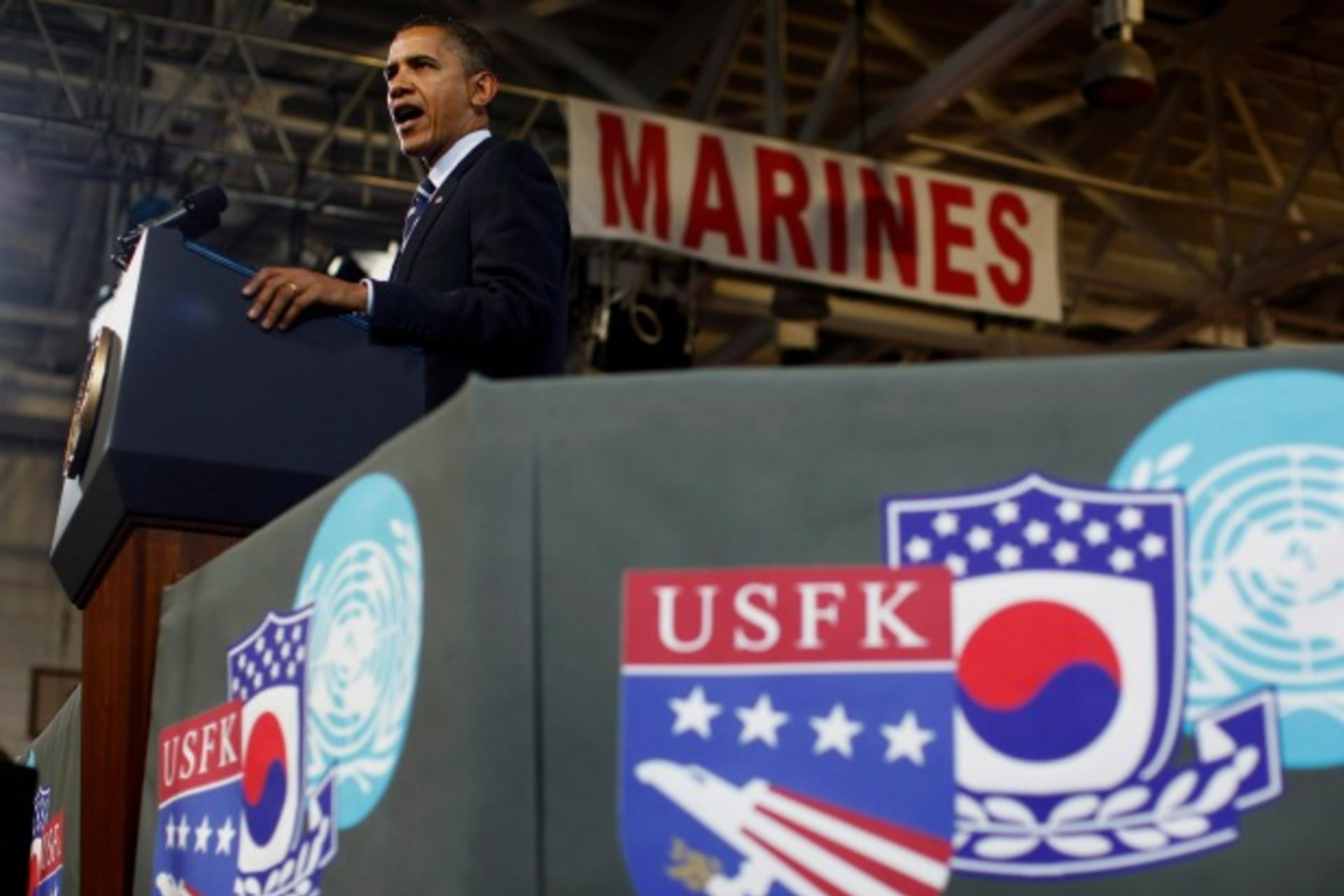South Koreans’ Outlook on China and the United States

By experts and staff
- Published
By
- Scott A. SnyderSenior Fellow for Korea Studies and Director of the Program on U.S.-Korea Policy
This post was co-authored by Darcie Draudt, research associate for Korea Studies at the Council on Foreign Relations.
On April 20, the Asan Institute for Policy Studies in Seoul released its latest report on South Korean public views on the United States. Overall, the numbers track fairly consistently with recent annual polls (Asan has tracked this data in 2012, 2013, and 2014): South Koreans polled view the United States as the major political and military, if not also economic, leader in the region. However, an overwhelming number of South Koreans expect that Chinese economic power will necessarily rise and U.S. economic power is declining; 70.5 percent believe China will be the future economic superpower while a mere 20.2 percent chose the United States.
The dominant South Korean framework for considering its foreign policies these days stems a dynamic in which South Korea is pulled by economic opportunities toward a rapidly growing China, but still relies for its security on the U.S.-ROK alliance. Such tension can be seen most recently in South Korea’s decision at the end of March to join the Asian Infrastructure Investment Bank (AIIB) as a founding member and an ongoing debate over whether to introduce Terminal High-Altitutde Area Defense (THAAD) missile defense to the Korean peninsula over Chinese objections. The latest Asan poll of Korean attitudes toward the relative power of the United States and China provides understanding of how the broader South Korean public perceives the situation.
A primary conclusion from this survey is that Korean appreciation for and affinity with U.S. leadership remains strong, but with some notable caveats. South Korean support for the U.S.-ROK alliance remains over 90 percent (this time last year) and South Korean personal affinity for the United States remains higher than Korean attitudes toward its immediate neighbors, China, North Korea, and Japan. A January 2015 publication from the Asan Institute shows South Koreans reporting the closest personal affinity with Americans (5.3 on a 10-point scale), compared to 4.5 with North Koreans, 4.6 with Chinese, and 3.0 with Japanese.
But the latest Asan survey also reveals a wrinkle in Korean support for the United States. Despite affinity with the United States, 44.5 percent of South Koreans surveyed stated that U.S. and South Korea do not share the same national interests. This suggests that current strong levels of support for the alliance could shift if South Koreans perceive that the alliance is not effectively serving South Korea’s interests. This gap could be exacerbated in the event that gaps emerge in U.S. and South Korean preferred policy approaches in dealing with China.
When comparing U.S. and Chinese leadership, a slight majority of South Koreans favor the United States as leader in global affairs, with 72 percent favorable in 2015 (compared to 57 percent in 2013). However, South Koreans increasingly view China an emerging leaderwith 52 percent of Koreans approving of China’s global leadership in 2015 compared witha mere 29 percent only two years earlier.
By contrast, Americans are slightly more tempered in their assessment of China’s role as global leader. In the 2014 Chicago Council poll, U.S. respondents believed the United States to have the strongest global influence, with an average value of 8.6 out of 10 points. Americans’ second–most influential choice was China, with an average rating of 7.4 points. Looking forward, the U.S. public still projects their country as the global leader, albeit with a narrowed gap in relative power with China (8.2 points for the United States, 7.6 points for China). There is a notable gap between Americans and South Koreans regarding the timing of China’s ascendancy as a global leader, with South Koreans expecting China to catch up to the United States within ten years.
Perhaps even more interestingly, there is a curious contrast between the South Korean public’s preference for U.S. leadership and South Korean public expectations that China will surpass the United States in national power within the next decade. These mixed views may be as much a measure of how South Korean feel based on their respective proximity to China versus the distance to the United States as what they expect of both countries going forward. Since public perceptions are increasingly influential as a factor influencing South Korean foreign policy, no doubt analysts in both Beijing and Washington will be closely reading future Asan polling of trends in Korean public opinion toward both countries.